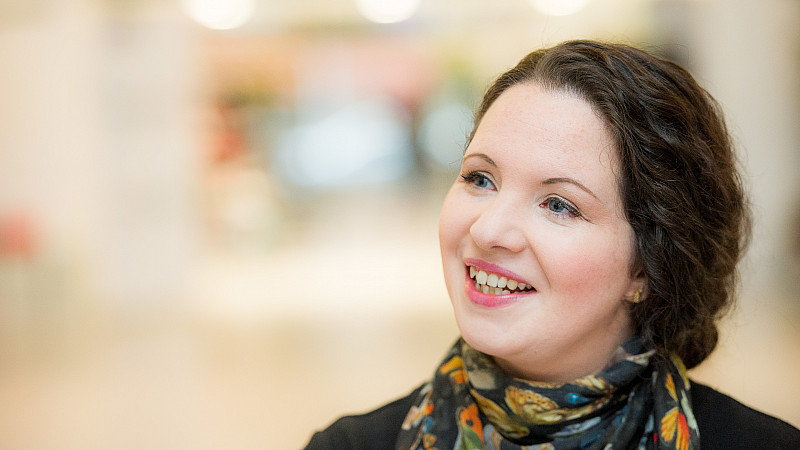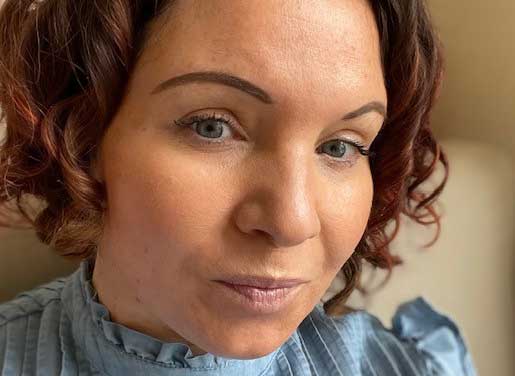Spotlight On...Kate McNamee, Director of Global Marketing & Communications, Alliance Manchester Business School (AMBS) at the University of Manchester


We sit down with academic marketeer, Kate McNamee, having been part of the University of Manchester for over 16 years, Kate highlights the wealth of talent in the North West, the importance of corporate and employer branding as well as the ethos of "Original Thinking Applied – using it to solve real world issues"

What does being based in the NW mean for your organisation?
In a word – talent! Having access to a wealth of talent - both in terms of the immediate team and the partner agencies we work with: This Is Digital and CityPress to name a couple. There is a certain kind of energy that comes from being part of such a vibrant region – our economic strength, culture of innovation combined with home-grown talent and the talent we attract.
How important is your corporate Brand and employer Brand to your business?
For us it is a symbiotic relationship - both are vital to the success of Alliance Manchester Business School and the University of Manchester.
Our corporate brand has its roots in and is brought to life through the AMBS community - our staff, our complex customers: prospective students/ delegates, current students and delegates and alumni.
By complex I mean the different facets each represents. For example, our academics are teaching students, a similar relationship to an employee talking to a customer. In higher education this is more nuanced as so much of this discussion is of complex ideas and learning, and in a way our academics have more of a responsibility to be informed and be positive ambassadors for the brand. To make it more complex when our academics share their thought leadership with the media - talking about the Government’s Budget for example, they are representing the business school and are also representing their view as an expert in their field.
Equally we work with our current students as ambassadors to engage with our prospective students in a way that is meaningful and relevant to them. This reinforces the value we place on our students as ambassadors in the same way our staff are in this instance.
Employer branding is an interesting space – there are times it can do more harm than good, if it operates in isolation. By that I mean focusing on employer branding in a silo that’s not connected to audience-driven activity.
When aligned with customer-driven activity there’s no doubt employer branding enhances your external positioning. When staff are active advocates, they play a vital role in helping shape brand and ultimately our reputation.
How do you manage your brand identity within the business to protect it and deliver consistently?
No brand gets it right all the time and I believe it is important to acknowledge when things don’t go to plan. For me it is going back to core marketing and communications principles: listening to our audiences – this is the most important thing; understanding their needs and working with them to help shape everything from our courses to the creative we use in campaigns. By doing this it enables us to anticipate conversations before they happen and then be able to engage in a meaningful way when they do.
Another way we do this is by closing the gap between what we say and what we do. For example, co-creation of MBA electives with our students, prospective students and alumni to ensure we are meeting the needs of the market. I am pleased that we have developed a robust system that allows us to engage directly with students and use the insight and suggestions as part of developing new course content.
Trust and transparency are also key and this goes back to the point earlier about our employer brand linking to the corporate brand. This is reflected when working with our international centres to ensure there is brand coherence whilst also giving enough flex in our messaging and creative to resonate with global audiences.
What do you think your brand stands for in the minds of your customers?
Our ethos is ‘Original Thinking Applied – using it to solve real world issues’. We have some great examples of how this has been brought to life during the Covid recovery, through the work of our students, alumni and academics who have contributed here in Manchester and internationally.
Professor Duncan Shaw and AMBS colleagues set up the Covid Recovery Team. Throughout the pandemic they have been working with organisations around the UK and globally – including local government emergency planners and resilience officers - to develop successful recovery plans.
Karen Brady, a Global Part-time MBA student, recently launched Bump It Forward, a healthcare campaign that donates the cost of a vaccine to countries in Africa who can’t afford basic PPE to keep the hospitals safe.
Caroline Charlton is an NHS doctor and also studying her MBA.
Do you carry out any brand research? How do you measure the value of your brand?
Absolutely. Listening to our audiences is at the core of everything we do. And without evaluation we wouldn’t know if what we are doing is working. From a research perspective it takes many shapes, from small qualitative focus groups with our prospective, current students and alumni to larger scale activity such as regular sentiment tracking and stakeholder reputation surveys. We also host regular focus groups to test messaging /creative/ communications preferences in the here and now. And the world of digital is a wonderful thing - enabling real time campaign analysis and optimisation via A/B testing.
Less frequent but just as important is the research we do with or prospective candidates to understand the psychological drivers behind their decision making to study with us.
Having said that, measuring brand equity and value is a tougher nut to crack. It’s not impossible and I believe this is where the integration with communications comes in. It is imperative the two are viewed together to truly understand brand message penetration and share of voice.
Has the pandemic changed your attitude towards the importance of brand?
I think it has further strengthened what we already knew - that our students, delegates and alumni are at the heart of what we do, listening is key and to be more human. It has also refreshed our focus on co-creation. From the creative we produce to the channel strategy and product. Always asking ourselves what is it our audiences want from new courses?
We’re also experimenting with more ‘conversational marketing’. If you can use natural or intuitive chatbots to answer transactional enquiries that frees up staff time to add value in answering more complex questions that require a nuanced, human approach.
Without stating the obvious, our response to Covid has reinforced the human side of our brand - not only what we say but how we do it as well. In our digital world and with so many of us working and studying remotely human interaction has become more important than ever.
We’re in a landscape now where purpose-driven brands purport to be everywhere and there’s no doubt audiences are attune to when it is not authentic. So, at AMBS we try to put our “why” at the centre of what we do. In this way our purpose is amplified and extended within and outside the business – brought to life by our students, alumni and staff and reflected by the organisations we partner with.
What is the secret to endurance/growth/success?
Listening to your audience. And always having an eye on continual optimisation - asking what went well, what didn’t and what are we going to do better next time?
Having a curious mindset and always asking questions increases your chances of anticipating what’s next – from a business and customer perspective. This is a team thing as well as an individual thing. If you have team curiosity, it also helps avoid ‘group think’. I am always aware of this and challenge my team to maintain this inquisitive outlook!
A healthy dose of humour helps - particularly when it comes to individual and team resilience. For example, when workloads spike being able to prioritise and unpick with humour keeps teams motivated. When the team is navigating the really difficult and sensitive stuff - that many of us have had to deal with through the pandemic – a culture underpinned by humour provides a release for individuals, so they can regroup and carry on without burning out.
I always keep in mind advice from Avinash Kaushik, Digital Marketing Evangelist at Google that “70% of activity is about keeping focus on your core business, 20% is creating space to push the boundaries and the final 10% is about the super experimental stuff, getting uncomfortable and learning from the activity that fails. In this way every success, however small builds a competitive advantage.”
Can you recommend any podcasts/books, share any tips?
- The Apology Impulse – Professor Cary Cooper
- LinkedIn Learning
- Original Thinking events, podcast and blog
This interview was by Sali Midjek-Conway our North West Vice Chair of Education and Associate Director, Marketing & Communications for The Zebra Partnership and Glove Consulting.

